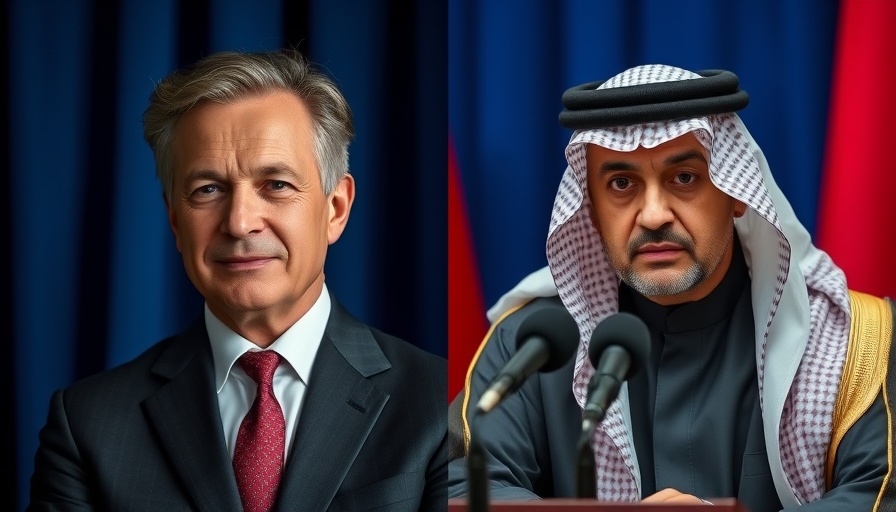
Qatar's Diplomatic Shift: A Closer Look
On April 24, 2025, a significant meeting took place in Doha, where Mossad Director David Barnea met with Qatari Prime Minister Mohammed bin Abdulrahman Al Thani. The discussions centered around a crucial topic in the ongoing conflict: the disarmament of Hamas. This moment underscores Qatar's emerging role in brokering peace in a region long fraught with tension.
What Does This Mean for Regional Stability?
The call for Hamas to disarm following the recent conflict marks an evolution in Qatari diplomacy, suggesting a shift towards greater involvement in managing peace efforts between Israel and Hamas. While Israeli officials perceive improved chances for a negotiated solution, concerns linger regarding Hamas' willingness to cooperate. The statement by an unnamed Israeli official indicates a readiness to apply more pressure, especially considering that Hamas appears to be stalling in its response to international demands.
The Broader Implications of Qatar's Role
Qatar has historically walked a tightrope in Middle Eastern politics, acting as a mediator while also maintaining ties with group factions like Hamas. This duality may provide Qatar a unique leverage point in future negotiations. The growing pressure to disarm Hamas might lead to further engagements not just with Israel but also with other regional players, including Egypt, which has voiced its own demands for a complete disarmament of Hamas’ military arsenal.
The Intersection of Faith and Politics
For globally aware Christians and those interested in humanitarian efforts, the discourse surrounding Qatar’s involvement raises important questions about faith-driven diplomacy. As advocates for social justice and peace, many Christian communities may find value in understanding the implications of such international relations on the ground-level experiences of people living in conflict zones. Engagement in interfaith dialogue could be crucial, fostering understanding that transcends political boundaries.
Future Predictions and Strategic Opportunities
Looking ahead, one might ask: What strategies can be employed by peace advocates within the Christian community to engage with the unfolding political narrative? Qatar’s newfound assertiveness could present opportunities for initiatives focused on reconciliation, interfaith dialogue, and support for the persecuted church in the Middle East. Drawing connections between political developments and humanitarian actions may empower faith communities to act effectively in support of peace.
Conclusion: Building Bridges
As we reflect on these recent developments, it is important for mission-minded individuals and social justice advocates to remain engaged and informed. Understanding the geopolitical landscape can inform our prayers and actions, helping promote peace and restoration in a world desperately in need of hope. Take a moment to engage with your community, share insights, and advocate for practical peace-building initiatives.
 Add Row
Add Row  Add
Add 








Write A Comment